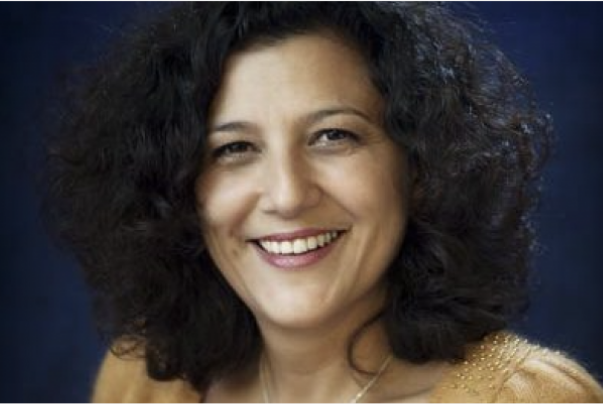
Door drop proposals pose new threat to fundraising
July 1, 2020
Yaële Aferiat: What we learned from taking the French fundraising conference online
August 5, 2020Photo credit: Petri Heiskanen on Unsplash
The scale and breadth of foundations’ response to the global pandemic has been exceptional, demonstrating their ability to be nimble, innovative and highly collaborative. Fundraising Europe explores the changing world of foundations and what this means for fundraising.
European philanthropy is reported to have mobilised over US$1.1 billion* by May this year to equip hospitals, fund healthcare and to support non-profit partners impacted by the coronavirus. Foundations have played a critical role in utilising partnership networks, developing innovative solutions and in channelling funding to the front line during the crisis.
More support and flexibility for NGOs
Recognising the potentially catastrophic impact of the pandemic on non-profits, the European Foundation Centre (EFC) and Donors and Foundations Networks in Europe (DAFNE) coordinated a European Philanthropy Statement in March this year, which saw over 180 foundations commit to offer greater support and flexibility to NGOs during the crisis. The Statement recognised the exceptional nature of the pandemic, that charities might struggle to deliver actions and outputs agreed with funders before the outbreak, and that they may need more time and more flexibility over the use of funds.
Organisations from the Stavros Niarchos Foundation (Greece) to ‘“La Caixa” Foundation (Spain) and the City Bridge Trust (UK) followed suit, announcing that they were making new funding available and, in the latter case, removing restrictions and telling grantees to use funding where they need it most.
And in survey findings released last week, the large majority of EFC member foundations reported that they had introduced or planned new initiatives to support the non-profit sector during the pandemic. Many said they had strengthened collaborations or set up new partnerships, while others made changes to ongoing funds or programmes.
Gerry Salole, EFC chief executive, said:
“We have been amazed by the depth and diversity of the philanthropic response to Covid-19. From emergency and solidarity funds to the pursuit of remedies and vaccines to supporting community activism and taking care of the most vulnerable, philanthropic organisations have come together to help, support and protect. It has shown its flexibility in responding to the most urgent needs while also addressing longer term issues, including the pressure the crisis is putting on pre-existing fault lines and fractures in our communities.”
Securing new funding and accelerating response
Far from the slow and steady image of charitable foundations from the past, the crisis has shown that they have the ability to be highly responsive, innovative and collaborative.
When the pandemic took hold in Belgium, the King Baudouin Foundation rapidly transformed its approach to channel funds to the crisis, tackling issues from poverty to homelessness, directing income to front line organisations and care homes. This new emergency funding service was driven by demand from philanthropists, businesses and those seeking a tried and trusted way to donate. It also attracted younger supporters, YouTubers and gamers, expanding the Foundation’s supporter base.

Ludwig Forrest, King Baudouin Foundation
Ludwig Forrest, head of international philanthropy at the King Baudouin Foundation, says:
“We’ve seen a complete transformation of our work during this time. Before March, we had no real experience of responding to emergencies. We were the organisation that people came to for reflection, partnership and structure support in meeting their funding goals. But the urgency of the pandemic and the determination of our supporters to help, triggered a fundamental change in our processes. Funding decisions – which usually take weeks – were massively accelerated and our first corona distribution saw €5 million handed out to beneficiaries in just 2 to 4 days from application.
“We already had the infrastructure in place to deliver funding, but we formed new partnerships, invested in processes and adapted existing ones so that we could get money where it was needed quickly. One of the biggest challenges was to do all this while responding to the philanthropic proposals of our donors and staying on top of our ongoing grant allocation programmes.
To date, the Foundation’s Covid funding has facilitated some 40,000 donations from private individuals, businesses and institutions amounting to €20 million – of which, almost €10 million went to hospital facilities.
Asked what this means for the future, Forrest adds: “This has shown that we have the ability to act fast and it’s likely that our ongoing work programmes can be sped up in the future. But we need to reflect carefully to ensure that we get the balance right in responding to urgent need, without compromising on accountancy, governance and auditing requirements.”
Dr Hanna Stähle, senior manager of strategic partnerships and communications at DAFNE, says:
“Out of this crisis, foundations really showed how agile and resourceful they can be in working together, identifying needs on the ground and finding the best way to respond.
“This is a new era for foundations and collaboration is at its core. No singular organisation could provide the response needed to tackle this crisis, and we’ve all seen the benefit of working together, sharing ideas and learning from one another, accelerating change.”
Driving innovation and collaboration
Although innovation among foundations was expanding rapidly long before the pandemic set in, the crisis accelerated change, seeding new partnerships and collaborative initiatives to maximise impact.
The IOTA Foundation in Berlin is just three years old. Its mission is to drive the development of new distributed ledger technologies, enabling people around the world to work together, solve problems and innovate. Through a collaborative network of developers, enterprises, government, civil society and academic institutions, the focus is on end-user empowerment and achieving social good.
Dr Michele Nati, lead technical analyst says: “One of the challenges that emerged during the crisis was the trust in, and exchange of data among citizens, businesses and governments, while being able to maintain the citizens’ privacy. Thanks to the Foundation’s agile way of working, we could quickly jump to action in applying our open-source technology to some of these pressing issues. An example was the development of IOTA Selv, a self-sovereign Digital Health Passport that allows the decentralised verification of health credentials, enabling citizens to travel more safely during public health crises.”
The Foundation’s social impact & public sector development lead, Florian Doebler, adds: “But, as a young organisation developing technology that is meant to last for decades, we strongly believe in a long-term view of facilitating technology adoption. Thus, despite the times of high uncertainty, it was important for us to continue our operations, offering grantees a sense of reliability and trust, maintaining all of our commitments and securing the long-term sustainability of our ecosystem.”
The Foundation also aims to actively transfer knowledge and technology to other foundations and NGOs, helping to streamline and safeguard their operations and to be better prepared for future global crises that require a strong and coordinated response.
Similarly, for the Community Foundation of Messina in Sicily – a cluster of strategic partners working to promote social justice, economic and human development – the pandemic meant no dramatic structural change, but rather an extension of its ongoing entrepreneurial approach and partnership network, which led to a critical new healthcare solution.
Known for its innovative approach, the Messina foundation was formed ten years ago when a group of local foundations and non-profits joined together to test and develop new socio-economic structures in the area. Messina has one of the highest unemployment and poverty levels in Europe, with over 1,800 families living in slums. They face a complex array of social needs from mental health to domestic violence, homelessness to education.

Giacomo Pinaffo, Messina Foundation
The Foundation designs, finances and supports a broad range of programmes, including housing, micro-loans, setting up companies and supporting enterprises, which have created over 400 jobs. Taking a holistic approach, Messina offers beneficiaries several potential solutions and works with each individual to help them choose the path that is the best fit.
Giacomo Pinaffo project manager at the Messina Foundation says: “The needs we address existed long before the coronavirus set in, but it has exacerbated those issues and, without the ability to meet in person, it’s certainly made it harder for us to support our beneficiaries. But it’s driven positive change too. We’ve created a new platform for co-working and sharing, which is working really well.”
“With a major shortage of medical supplies in hospitals, a local university – a strategic partner of the Foundation, approached us with the idea of developing a network of 3D printer owners to produce switchers that would allow oxygen tanks in hospitals to supply two people, effectively doubling the supply. The programme was extremely successful, not just as a technical solution but in creating a more resilient network for the future, which means that we have the opportunity to offer similar solutions promptly if anything like this happens again.”
Strengthening local and community action
Community-focused philanthropy has been a common and growing theme across Europe in recent years with more than 800 community foundations across the continent, but local knowledge and outreach became critical during the health crisis with entire neighbourhoods in ‘lockdown’.

James Magowan, European Community Foundation Initiative
“This has been a pivotal moment for community foundations in Europe,” says James Magowan, co-ordinating director of the European Community Foundation Initiative (ECFI).
“Those that were well-established and had a track record have really come into their own, showing the value of having an area-based approach, where a range of issues including poverty, health, education and equality can be addressed in a holistic way.”
In Italy, foundations played a key role in the national drive to get medical supplies out at a local level and built a platform to connect funders to need, while the UK Community Foundations network became the outreach partner for the National Emergencies Trust’s coronavirus response, funding foodbanks, community services and more.
Magowan says: “The foundation movement in Romania has been really progressive, equipping hospitals and becoming one of the first countries to protect the arts, setting up a new fund for independent artists. But it’s been difficult for foundations in countries like Hungary, where they aren’t well established and thus don’t have the resilience to be able to adapt.”
Asked what this means for the future, he adds: “As foundations move from response to recovery mode, we’re seeing greater appetite amongst funders to build resilience, supporting non-profit partners and core operations, not just their project work. But the pandemic has also exposed the challenge of addressing inequality, economic disparity and divisions in society. These issues require systemic change, not just a sticking plaster solution.
“Foundations are working hard to adapt, but the world has changed dramatically in recent months and this next phase will be a critical moment for learning and reviewing both what went well and what needs to be improved or done differently in this ‘new normal’.”
Impact on fundraising
This shift towards a more collaborative and agile approach from foundations has been warmly welcomed, but it has also created challenges for charities applying for non-Covid funding in an extremely competitive market.

Alicia Grainger, Fundraising Consultant
Alicia Grainger, fundraising consultant and manager of the Trust Fundraising Hub (UK), explains:
“Lack of access to many traditional fundraising channels has put more focus on income from foundations, which means that there’s even more competition when applying for grants and fundraisers in the foundation field are busier than they’ve ever been.
“It’s a rapidly changing landscape and foundations are reacting to the pandemic in very different ways. New funding programmes are being set up, while others are being paused or closed in favour of supporting current grantees. Many foundations are removing restrictions or changing funding criteria, and there’s a trend to break up funding pots into smaller grants so that more organisations can benefit. We’re also seeing new partnerships, making emergency Covid-19 funding available with a single application process.
“But for fundraisers whose organisations aren’t working on the frontline or in immediate financial difficulty, it certainly feels as though the funding opportunities are more limited. In this case, fundraisers are likely to have to work harder to keep up with the changes, find new opportunities, meet short application deadlines, and invest more time in prospect research.
She adds: “This makes it all the more important that fundraisers focus on stewarding their existing supporters – they’ll be key to many charities surviving this crisis. Now is the time to make funding applications the best they possibly can be, to invest in training, joining peer networks and online communities to help learn and adapt.”
*Source McKinsey, 2020
Useful links:
Unitus Europe – European Philanthropy and Social Investing Impact Hub
EFC – How EFC members are mitigating the impact of Covid-19




